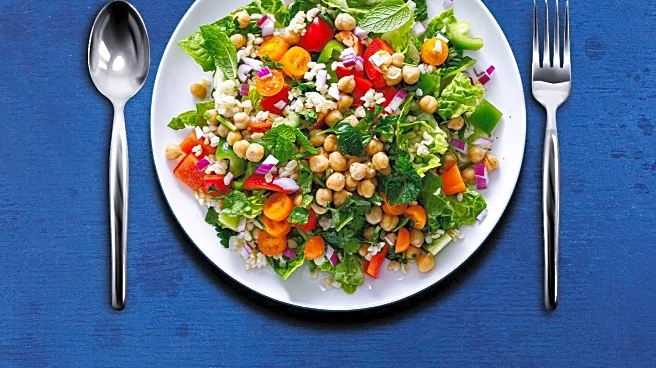What's Happening?
A family is experiencing tension over meal planning due to differing dietary preferences. The wife, who enjoys cooking, has been preparing meals that offer both meat and vegetarian options to accommodate her vegetarian husband of over 20 years. Recently, her husband expressed dissatisfaction with this approach, stating that it 'others' his portion of the meal and is offensive. This has left the wife feeling hurt and confused, as she believed her efforts were a sincere act of love. The husband has suggested he will 'fend for himself,' which raises concerns about the efficiency of feeding the family.
Why It's Important?
This situation highlights the challenges families face when accommodating diverse dietary preferences. It underscores the importance of communication and understanding in family dynamics, especially when it comes to meal planning. The wife's approach reflects a common strategy in mixed-diet households, aiming to respect individual choices while maintaining family unity. The husband's reaction suggests a deeper moral or ethical shift in his views on vegetarianism, which could impact family interactions and meal planning strategies. This scenario is relevant to broader societal discussions on dietary choices and their implications for family life.
What's Next?
The wife may need to reconsider her meal planning approach, possibly focusing on vegetarian meals that the children also enjoy, while allowing her husband to prepare his own meals. This could lead to a more harmonious family dynamic, though it may require further discussions to understand the husband's evolving views on vegetarianism. The couple might benefit from open communication to address underlying issues and find a mutually agreeable solution. This situation could also prompt other families to reflect on their own meal planning strategies and the importance of accommodating diverse dietary needs.
Beyond the Headlines
This story touches on the cultural and ethical dimensions of dietary choices within families. It raises questions about how personal beliefs and dietary practices can influence family dynamics and relationships. The husband's reaction may indicate a shift in his ethical stance on vegetarianism, which could have long-term implications for the family's meal planning and interactions. This scenario also reflects broader societal trends towards vegetarianism and the challenges of integrating such diets into family life.









